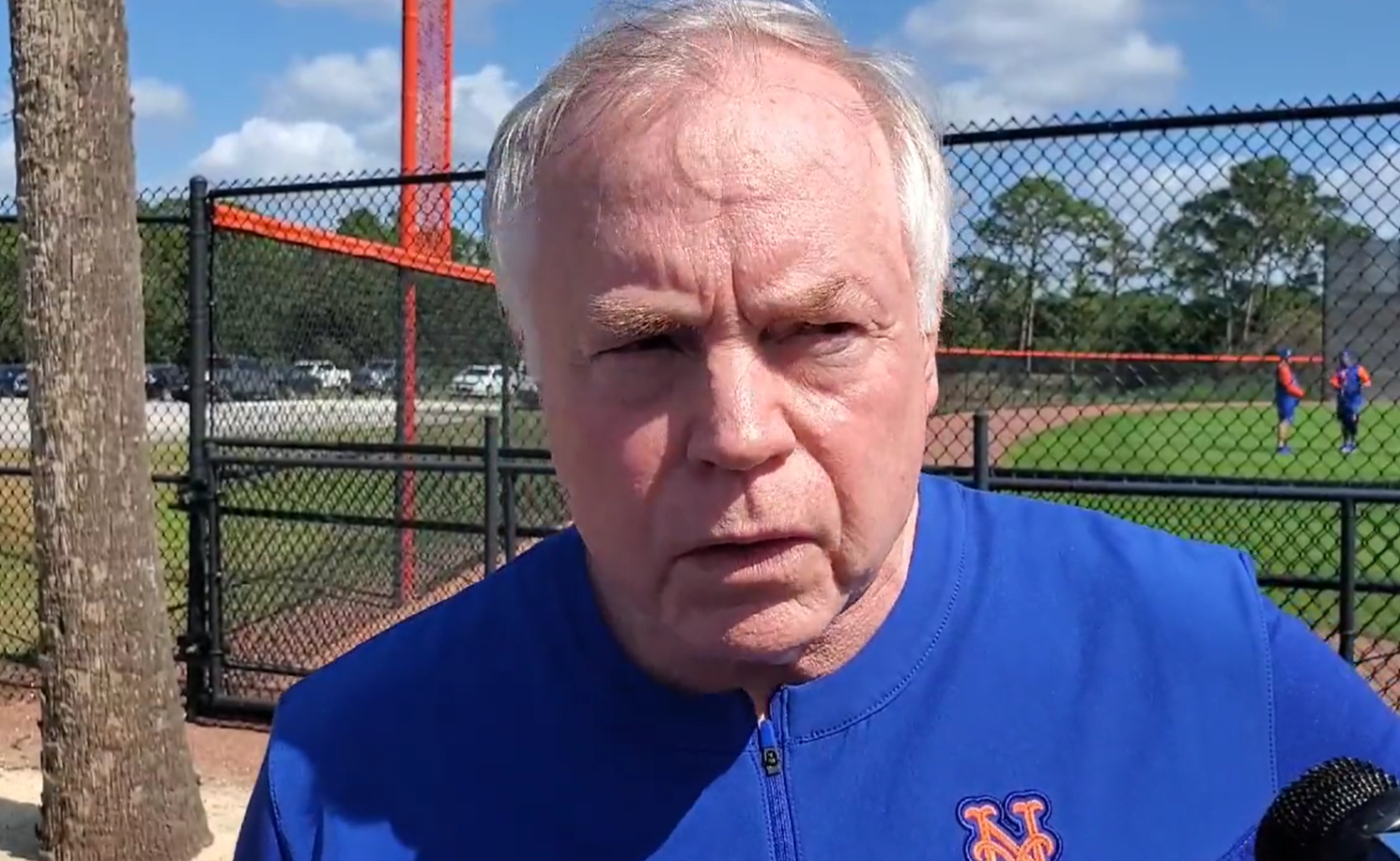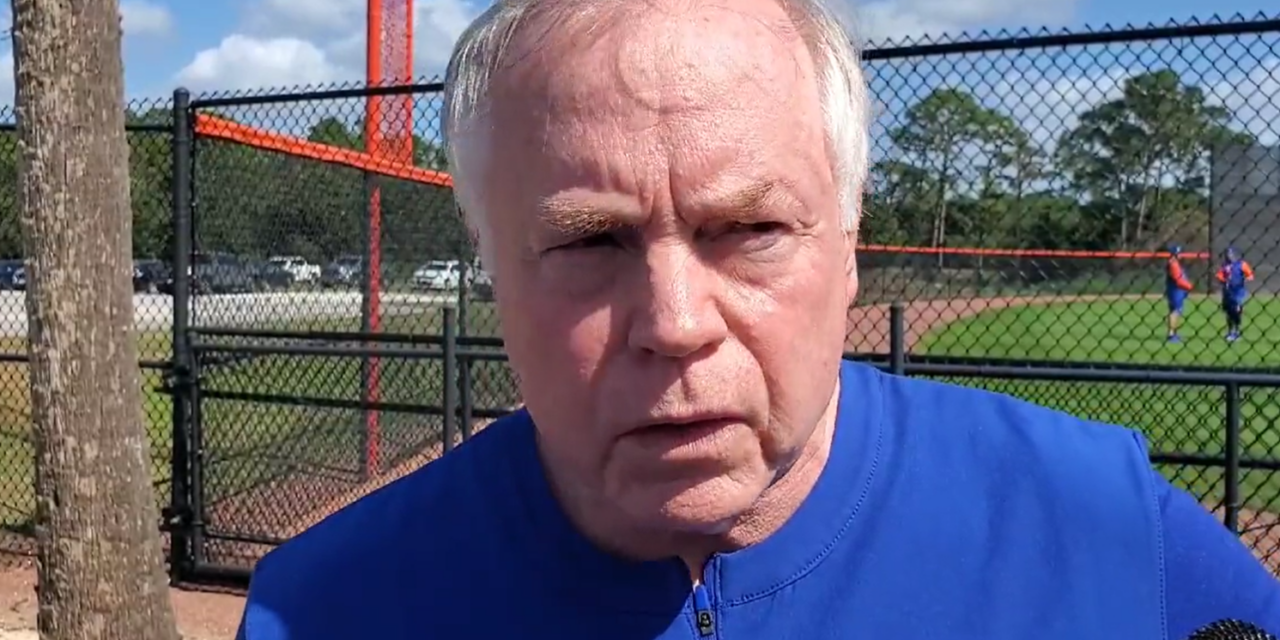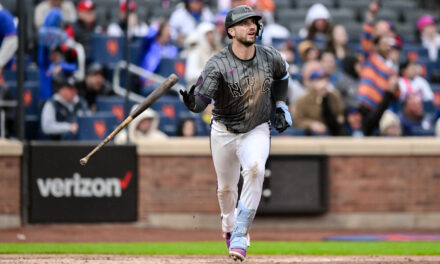
The past few days have been the worst kind of emotional roller coaster, folks. Right when it was maybe OK to be a little optimistic about the MLB lockout ending, we were just let down once again.
The cruelest part of all is that everything went down on March 1st. March 1st! You know, when spring training is supposed to be in full swing and we usually start saying “We’re going to start watching baseball games that actually count in X days.” But no, not only has spring training not started yet, the first two series of the regular season have been canceled. And for some reason, MLB commissioner Rob Manfred was smiling at times while making that announcement.
It certainly doesn’t feel like that guy likes baseball very much.
We don’t actually know when the regular season is going to start yet. It’ll hopefully be sooner rather than later, but now it won’t be any sooner than April 7th. The New York Mets are losing five home games, all of which were scheduled to be against fellow National League East opponents in the Washington Nationals and Atlanta Braves.
So what exactly does this mean for them? Five games doesn’t seem like a ton, but it could have significant implications depending on how tight the divisional race is. Back in the middle of December, when we all thought this lockout wouldn’t last very long, I talked about how New York would immediately be getting tested upon looking at their April schedule. With five fewer games, though, it forces manager Buck Showalter and his squad to focus on the details even more than they were already likely planning to.
Sure, it’s only five games, but they were five games at Citi Field. That was a situation where the Mets posted a 47-34 record in 2021. The balance of home and away games is ever so slightly leaning towards away games (at least, for now), meaning New York will have to play in a situation where the team posted a 30-51 record last year.
This schedule change also puts more pressure on players and the team overall to get the upcoming season off to a fast start, which is something the club hasn’t done over the past three seasons. Entering May of 2019, the Mets were 15-14. Entering August of 2020, they were 15-18. This past season, New York entered May with a 10-11 record.
While the Amazins didn’t necessarily distinguish themselves in NL East play last season with a 39-37 record, it was the only division they posted a winning record against (13-20 vs. NL Central, 16-17 vs. NL West, 9-11 vs. AL teams). And although it’s not necessarily terrible to see that they’ll be facing the Braves fewer times than usual, missing that first series against the Nationals hurts because it’s against a team projected to finish in last place. Just as a refresher, the Mets were 44-32 vs. losing teams and 33-53 vs. winning teams in 2021.
We haven’t seen Buck Showalter manage a game in Flushing yet, but he’s put together a reputation for being incredibly thorough and sweating all the details. That’s good because while the details always matter during the regular season, they continue to get magnified when the schedule starts shrinking from 162 games — even if it’s just five contests.
How deep the starting rotation can get in games will matter more. How Showalter uses his bullpen will be under a little more of a microscope. The Mets’ offense won’t have the same amount of time to right the ship if they’re not firing on all cylinders. Small things like playing good defense and running the bases effectively all become more important.
Is this being a little dramatic? I’m not going to lie — maybe I am. But we don’t know exactly how much longer this lockout is going to last. It could just be the first two series that get canceled, and it might be more. Who knows how this will impact the plans of MLB front offices once free agency opens back up. And, in turn, who knows how that impacts what the Mets eventually do when they’re finally able to put a punctuation mark on a very long, boring, and frustrating offseason.
The immediate future — and long-term future, for that matter — of the game is up in the air. Regardless of what happens here, we know that our Metsies will need to be a stickler for details even more than they were already planning to be. Of course, I’m saying this with the (possibly naive) assumption that they’ll get on the field sometime soon, which we all know is no guarantee.















